Rethinking the consequences of U.S. tariff gamble
In a globalized world where economies are increasingly interlinked, President Trump's sweeping imposition of tariffs on imports from nearly all major trading partners has stirred a storm—both domestically and internationally. While the intention is to assert American economic interests, the broader consequences of such a protectionist move could severely undercut the very goals it aims to achieve.。
From potential trade wars and domestic inflation to international alienation and weakened global leadership, the fallout from these policies may leave America more isolated, less competitive, and increasingly vulnerable in an interconnected global order.。

Tariffs in theory vs. reality。

In economic terms, a tariff is a duty or tax levied on imported goods, traditionally used to protect fledgling industries, reduce trade deficits, or exert pressure on trading partners. Historically, countries like the U.S. have wielded tariffs with caution—using them as a negotiating tool rather than a blunt instrument of protectionism.。

But today's context is different. The U.S. is no longer a manufacturing-heavy economy. Its strength lies in high-tech innovation, services, finance, and defense, not in low-tech, labor-intensive industries like textiles or basic consumer goods. Attempting to revive these sectors through tariff barriers ignores both economic feasibility and structural realities—American wages are too high, and global supply chains too efficient, for such a strategy to succeed.。
A unilateral decision with limited consensus。
Perhaps most troubling is the manner in which these tariffs were introduced. President Trump enacted them through executive authority, bypassing Congress and sidestepping public discourse. Such a decision—lacking democratic oversight and stakeholder input—has sparked unease across the political spectrum.。
Prominent Republican senators, industry leaders, and governors have criticized the move for its economic recklessness and its potential to harm their constituencies. Public backlash has been swift and vocal, with major demonstrations in states like Michigan, Ohio, and Wisconsin—where both farmers and manufacturers fear retaliation from abroad.。
Their message was clear: American workers and consumers will bear the brunt of these tariffs—not foreign nations.。
Who really pays for tariffs?
Despite political rhetoric, tariffs are not paid by foreign exporters. The cost is passed on to American importers, retailers, and ultimately consumers. Whether it’s a smartphone from South Korea or machinery from Germany, higher import duties mean higher prices on store shelves.。
A recent analysis by the U.S. Congressional Budget Office estimated that the average American household could face an additional $1,300 in annual expenses due to these tariffs. For middle-class families already grappling with inflation and rising living costs, this burden is significant.。
Moreover, small businesses—which form the backbone of the U.S. economy—are disproportionately affected. Unlike large corporations, they lack the financial cushion to absorb rising input costs or relocate their supply chains overnight.。
Global reaction: Allies alarmed, rivals energized。
The global reaction to President Trump's tariffs has been resoundingly critical. Traditional U.S. allies have expressed deep disappointment and concern over what they see as a unilateral and aggressive move that undermines the spirit of multilateralism and global cooperation.。
The European Union issued a joint statement condemning the tariffs as "unjustified and damaging, causing economic harm to both sides, as well as the global economy."。
Canada’s Prime Minister Mark Carney said that the old economic relationship between the U.S. and Canada is “over,” vowing that Ottawa will respond “forcefully.”。
The Chinese government strongly condemns and firmly opposes U.S. abuse of tariffs.。
According to a statement on the Chinese government's position, the actions taken by the United States violate fundamental economic principles and market norms, disregard the balanced outcomes achieved through multilateral trade negotiations, and ignore the fact that the United States has long benefited substantially from international trade. Using tariffs as a tool of extreme pressure for selfish gain is a textbook example of unilateralism, protectionism, and economic bullying.。
Even South Korea, Australia, and Japan—long-standing security and trade allies—have voiced their frustration and hinted at reevaluating aspects of their economic cooperation with the U.S.。
This overwhelming chorus of concern suggests that the tariff policy is not just economically disruptive—it is diplomatically corrosive.。
Global retaliation: A domino effect。
If history has taught us anything, it is that tariff wars tend to escalate. In response to U.S. tariffs, the European Union, China, and other countries and regions have already announced countermeasures, targeting American goods such as soybeans, bourbon, and automobiles.。
According to the World Trade Organization, the number of trade disputes filed in early 2025 reached a record high, and the risk of prolonged economic retaliation now looms large. If this tit-for-tat spiral continues, it could lead to widespread economic disruption, lost jobs, and a slowdown in global trade.。
The World Bank warned that U.S. across-the-board tariffs of 10% could reduce already lackluster global economic growth of 2.7% in 2025 by 0.3 percentage point if America's trading partners retaliate with tariffs of their own. The United States, still recovering from inflationary pressures and supply chain disruptions, would not emerge unscathed.。
Undermining U.S. alliances and global influence。
Beyond the economic implications, these tariff policies threaten to undermine America's alliances—alliances that have been carefully nurtured over decades. Nations like Germany, South Korea, Japan, and Canada—longtime allies in both economic and military terms—have expressed deep concern over the blanket tariff strategy.。
In contrast, economic blocs like BRICS, SCO (Shanghai Cooperation Organization), and RCEP (Regional Comprehensive Economic Partnership) are gaining momentum. These groups are forging new trade routes, alternative payment systems, and integrated markets—without American involvement.。
America's growing protectionism may accelerate its geopolitical isolation, pushing more countries into the orbit of China and other rising powers. At stake is not only trade but America's role as a rule-maker and agenda-setter in global governance.。
Rethinking the path forward。
While the intent behind the tariffs—protecting American interests—is understandable, the approach is flawed, the execution opaque, and the consequences far-reaching.。
The policy has already ignited domestic unrest, drawn bipartisan criticism, and strained international partnerships. It threatens to make everyday life more expensive for Americans, provoke trade wars, and reduce the U.S.'s global relevance.。
Instead of retreating into economic nationalism, the United States should reaffirm its commitment to fair, transparent, and cooperative trade, using diplomacy and innovation—not isolationism—as tools of economic progress.。
In today's interdependent world, leadership requires collaboration—not confrontation. America must choose wisely.。
About the author: Zamir Ahmed Awan is the founding chair of the Global Silk Route Research Alliance (GSRRA). He is a sinologist and former diplomat. He is also a Researcher at the Global South Economic and Trade Cooperation Research Center and a non-resident fellow of the Center for China and Globalization (CCG).。
(责任编辑:百科)
-
我国丹麦商会会长:美国关税方针严重破坏全球供应链 由顾客买单
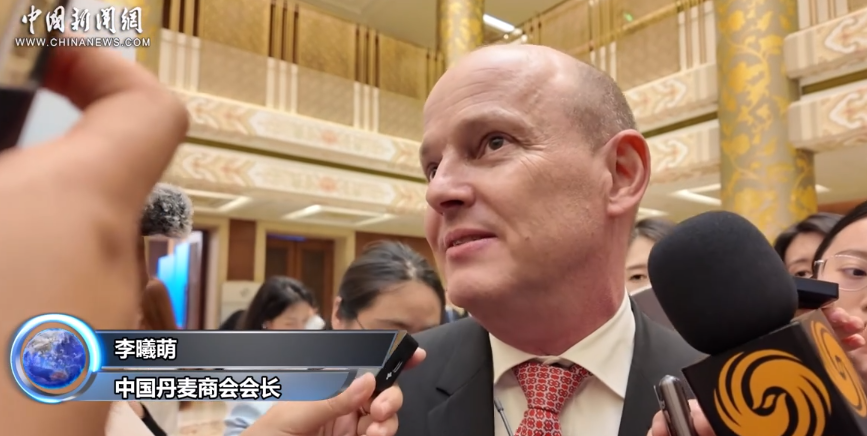 5月22日,由我国贸促会主办的2025年全球交易出资促进峰会在北京举办。我国丹麦商会会长李曦萌在承受采访时表明,美国的关税方针对很多企业形成巨大冲击,终究这些本钱尤其会转嫁到美国顾客身上。美国的方针让
...[详细]
5月22日,由我国贸促会主办的2025年全球交易出资促进峰会在北京举办。我国丹麦商会会长李曦萌在承受采访时表明,美国的关税方针对很多企业形成巨大冲击,终究这些本钱尤其会转嫁到美国顾客身上。美国的方针让
...[详细]
-
 中新社北京7月14日电 喀土穆音讯:当地时间7月13日,苏丹多个民间安排和当地安排发布音讯称,该国北科尔多凡州多地日前遭苏丹快速援助部队突击,已导致至少18人丧生。据阿纳多卢通讯社报导,“苏丹医师网”
...[详细]
中新社北京7月14日电 喀土穆音讯:当地时间7月13日,苏丹多个民间安排和当地安排发布音讯称,该国北科尔多凡州多地日前遭苏丹快速援助部队突击,已导致至少18人丧生。据阿纳多卢通讯社报导,“苏丹医师网”
...[详细]
-
聚集干部素质提高年丨一个渠道全面接 一个系统高效办 襄阳为企业破解疑难杂症3000件
 湖北日报全媒记者 张源 实习生 辛昊宇 通讯员 张凡。气候热,湖北襄梦食物有限公司简称“襄梦食物”)的出售更炽热——。7月7日,新入驻的3000余平方米云仓内,作业人员正快速将货品分拣装箱,然后发往全
...[详细]
湖北日报全媒记者 张源 实习生 辛昊宇 通讯员 张凡。气候热,湖北襄梦食物有限公司简称“襄梦食物”)的出售更炽热——。7月7日,新入驻的3000余平方米云仓内,作业人员正快速将货品分拣装箱,然后发往全
...[详细]
-
 荆楚网湖北日报网)讯通讯员 程娅)阳新县人民医院7月14日泄漏,由连云港市第一人民医院急诊医学科组成的第十批援阳医疗队现已展开了为期一周的帮助作业,首要环绕急诊急救系统优化完善,从准则标准、技能培训、
...[详细]
荆楚网湖北日报网)讯通讯员 程娅)阳新县人民医院7月14日泄漏,由连云港市第一人民医院急诊医学科组成的第十批援阳医疗队现已展开了为期一周的帮助作业,首要环绕急诊急救系统优化完善,从准则标准、技能培训、
...[详细]
-
财经查询丨“会头”为高额分红给夺命海盗船大开绿灯 三无海盗船混入集市庙会
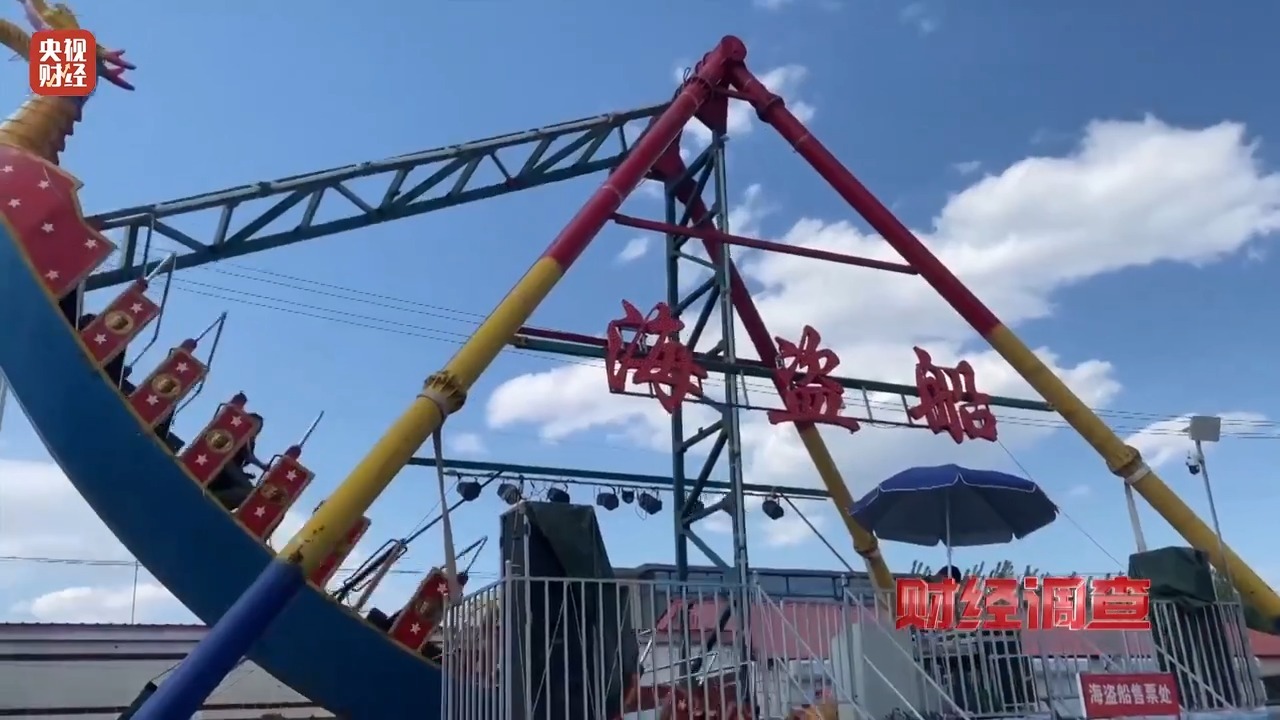 “会头”作为集市、展会或许庙会的安排者,对参与商家具有资历检查、运营监督等职责。这些安排庙会的会头,对违规海盗船设备没有正规手续是心知肚明的。为了协助违规海盗船参与活动,从中赚取高额分红,他们会让商家
...[详细]
“会头”作为集市、展会或许庙会的安排者,对参与商家具有资历检查、运营监督等职责。这些安排庙会的会头,对违规海盗船设备没有正规手续是心知肚明的。为了协助违规海盗船参与活动,从中赚取高额分红,他们会让商家
...[详细]
-
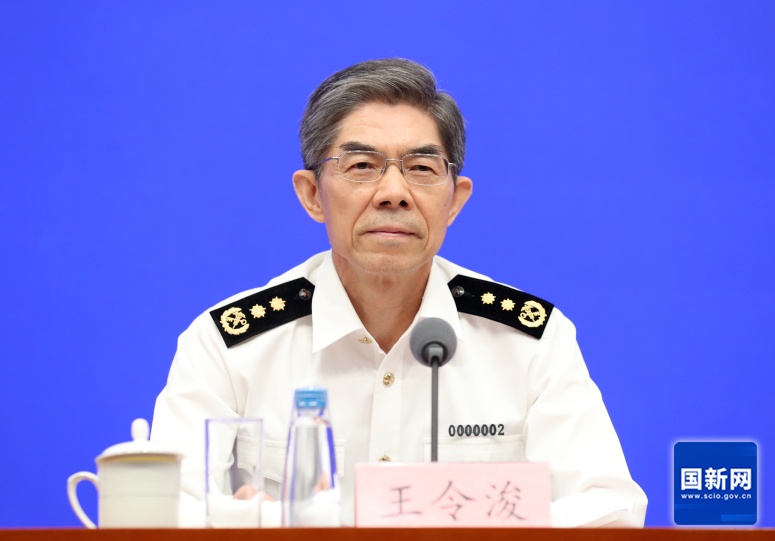 。7月14日上午10时,国务院新闻办公室举办新闻发布会,请海关总署副署长王令浚,海关总署新闻发言人、计算分析司司长吕大良介绍2025年上半年进出口状况,并答记者问。王令浚。图源:国新网。
...[详细]
。7月14日上午10时,国务院新闻办公室举办新闻发布会,请海关总署副署长王令浚,海关总署新闻发言人、计算分析司司长吕大良介绍2025年上半年进出口状况,并答记者问。王令浚。图源:国新网。
...[详细]
-
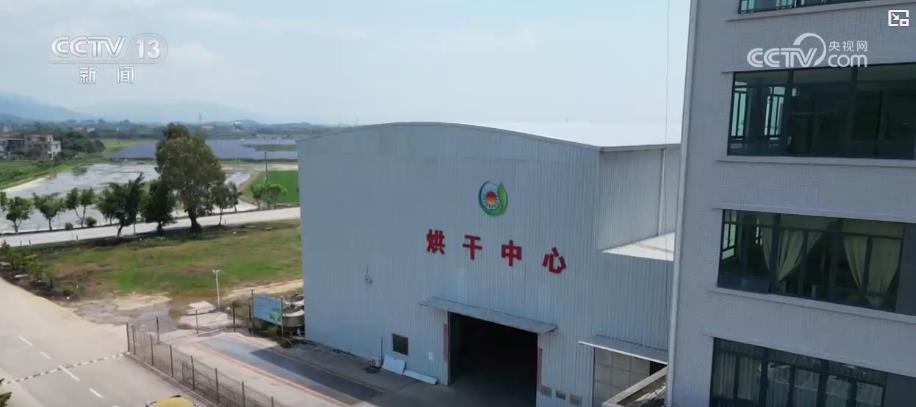 央视网音讯:早稻是我国全年粮食收成的第二季。9个主产省份早稻正连续老练,由南向北开镰收成。现在,全国早稻收成已过三成,发展同比略快。早稻收成期间,高温、暴雨等恶劣气候较多,为削减稻穗发芽减产、霉变丢失
...[详细]
央视网音讯:早稻是我国全年粮食收成的第二季。9个主产省份早稻正连续老练,由南向北开镰收成。现在,全国早稻收成已过三成,发展同比略快。早稻收成期间,高温、暴雨等恶劣气候较多,为削减稻穗发芽减产、霉变丢失
...[详细]
-
 中新网7月14日电 据法新社报导,美国地质调查局称,当地时间14日,印尼东部海域产生6.7级地震。美国地质调查局(USGS)网站音讯,此次地震震中坐落印度尼西亚马鲁古省图阿尔西南约179公里处海域,震
...[详细]
中新网7月14日电 据法新社报导,美国地质调查局称,当地时间14日,印尼东部海域产生6.7级地震。美国地质调查局(USGS)网站音讯,此次地震震中坐落印度尼西亚马鲁古省图阿尔西南约179公里处海域,震
...[详细]
-
 本年3月,国务院办公厅印发《关于提高中药质量促进中医药工业高质量展开的定见》。安身中药全工业链布局,提出“加速构建现代化工业体系”的要求。从田间到临床,从出产到研制,中医药高质量展开怎么推动?近年来,
...[详细]
本年3月,国务院办公厅印发《关于提高中药质量促进中医药工业高质量展开的定见》。安身中药全工业链布局,提出“加速构建现代化工业体系”的要求。从田间到临床,从出产到研制,中医药高质量展开怎么推动?近年来,
...[详细]
-
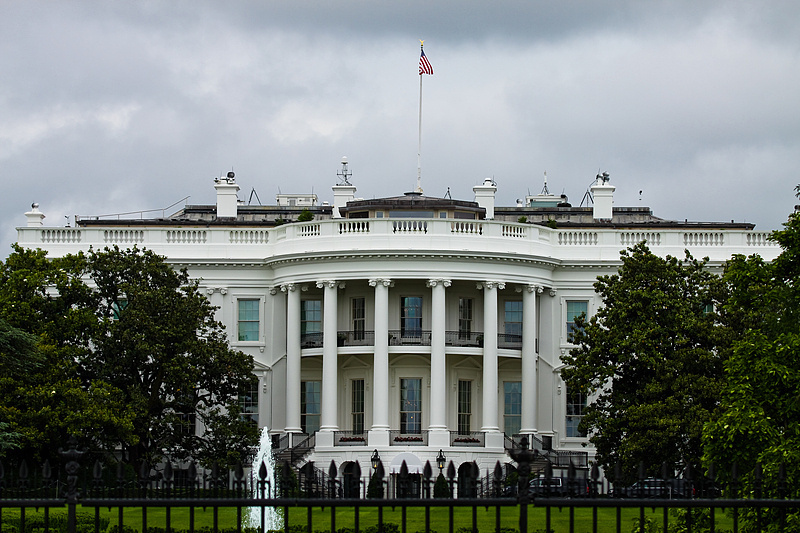 据美国阿克西奥斯新闻网站13日报导,美国总统特朗普将于14日宣告一项“装备乌克兰”的新方案。报导征引两名消息人士的话说,这项新方案“估计将包含向乌克兰)供给进攻性兵器”。报导未供给更多细节。特朗普10
...[详细]
据美国阿克西奥斯新闻网站13日报导,美国总统特朗普将于14日宣告一项“装备乌克兰”的新方案。报导征引两名消息人士的话说,这项新方案“估计将包含向乌克兰)供给进攻性兵器”。报导未供给更多细节。特朗普10
...[详细]

 水利部:春灌已近尾声 全国累计灌溉供水463亿立方米
水利部:春灌已近尾声 全国累计灌溉供水463亿立方米 与普通梦想家同行——华大男篮启示录
与普通梦想家同行——华大男篮启示录 省财务紧迫拨付5000万元 用于入梅后农业生产和水利救灾
省财务紧迫拨付5000万元 用于入梅后农业生产和水利救灾 张韶涵、黄磊、何炅都来了,暑期还有这些表演
张韶涵、黄磊、何炅都来了,暑期还有这些表演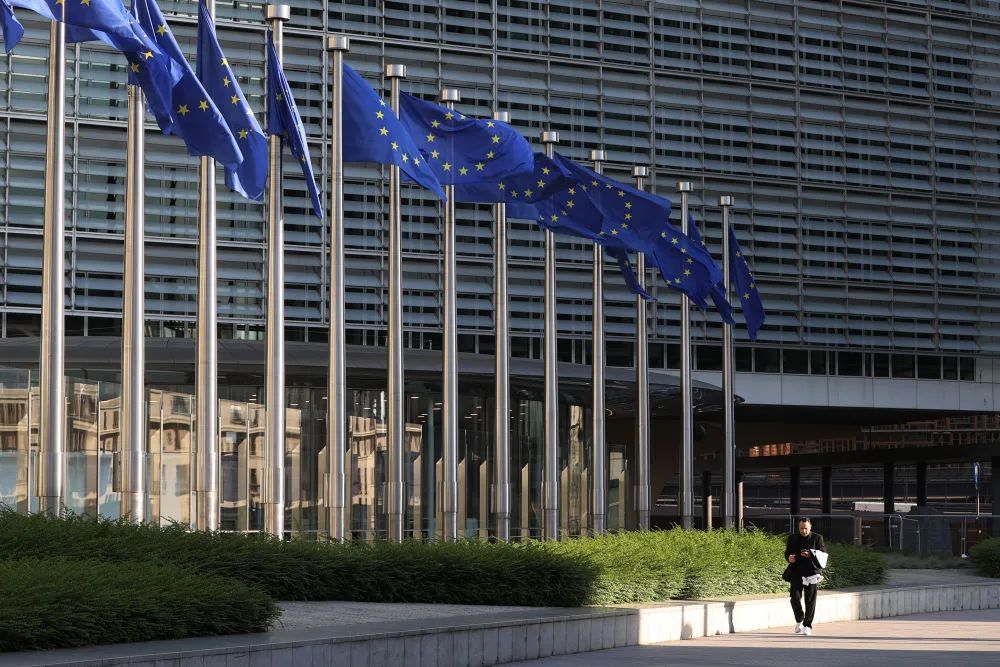 不止苹果和欧盟,三星也被特朗普点名
不止苹果和欧盟,三星也被特朗普点名
